how to Become a Non-Profit Event Planner
Now that we have a better understanding of Non-profit Event Planning, in this section we’ll:
Who Organizes Non-Profit Events?
International, National, Regional, & local events
Fundraising, charity, and non-profit event planning can operate at a number of different levels; international, national, regional, and local.
For example, a national charity, Amfar (The American Foundation for AIDS Research) holds an international fundraising event, Cinema Against AIDS, in Cannes every year to coincide with the Cannes Film Festival.
Both charities and non-profit organizations also hold events at a national or regional level — often a mixture of both. In the UK for example, The British Red Cross may hold a large gala event in London, but still have smaller fundraising events up and down the country organized by the charity’s regional offices.
Similarly, the US Democratic Party might organize its own gala fundraiser in Washington DC, while the regional Democratic parties in each state might organize a number of smaller fundraisers throughout the year.
amfAR’s 20th Annual Cinema Against AIDS at The 66th Annual Cannes Film Festival
Opportunities to become a non-profit event planner
In-house event planners
From an event planning perspective, most fundraisers, charity, and non-profit events are organized ‘in-house’ by the host organization. For example, charities such as The Red Cross, UNICEF, Save the Children, and Make a Wish Foundation will all have in-house event planners to handle national and international level events. These job titles typically use variations of event coordinator, assistant, planner, or manager, with a fundraising prefix, e.g. fundraising events manager.
Administrative staff and volunteer committees
At a regional level, organizations may not have specific fundraising event planners, so these events might be organized by general fundraising staff, administrative staff, or volunteer committees. (As these regional organizations are often under-resourced, they can be a great place to volunteer in order to gain event planning experience).
Special Event Agencies
For larger or more complex events, a charity or other non-profit organization might hire an event company to help them design and plan the event, in order to give them more time to concentrate on the fundraising aspects.
For example, my company Leftfield Productions has worked for The British Red Cross on their annual gala ball in London. The event had been running very successfully for many years, but was a fairly traditional event in that it was a formal black tie dinner held in a hotel ballroom. In 2004, The British Red Cross decided they wanted to rejuvenate the event; to make it more informal, glamorous, and ‘cool’ — so that it would appeal to a younger, fashionable audience.
Therefore, my company took over the design and planning of the event, re-located it to a tent venue, and added more creative theming and decoration. Over the next few years it began to attract more celebrity guests and eventually became a much more ‘hot’ event in the social calendar.
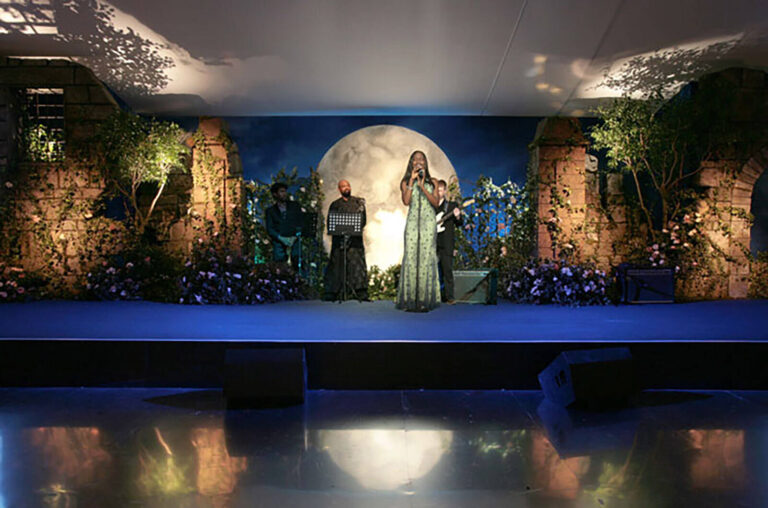
However, my team still reported to the in-house fundraising event planner, who was very hands-on throughout the whole process.
The Role of a Non-profit event planner
Charity / fundraising / non-profit event planners really have to wear two hats in their job; they have to design and plan the event like any other type of event planner, while also fulfilling their duties as a fundraiser. That is, ensuring the event meets the necessary financial targets in order to create a profit, therefore justifying the amount of money spent on staging it.
In many cases, in-house charity / fundraising / non-profit event planners liaise directly with individual suppliers themselves; dealing directly with the venue, caterers, AV & lighting company etc — often because they may not have a large enough budget to justify hiring an event company to organize the entire event for them.
Working with Volunteers and Committees
Often, the in-house fundraising event planner will also work with a committee of high-level volunteers, who will help steer and guide the event, provide contacts, sell tickets, solicit donations, prizes and sponsorship, and generally act as ambassadors to ‘talk up’ the event and create word of mouth buzz.
Finally, a fundraising / charity / non-profit event planner is also supported by a team of volunteers who will work both on-site at the event, and sometimes office-based in the weeks leading up to the event.
Job Opportunities
As you can see, the majority of opportunities to become a charity / fundraising / non-profit event planner are in-house for the host organization; either at a national headquarters level or in regional divisions, and in either a paid or volunteer capacity.
Alternatively, if an event planner is working for a special events company, they may also have the opportunity to work on charity / fundraising / non-profit events, although probably not exclusively.
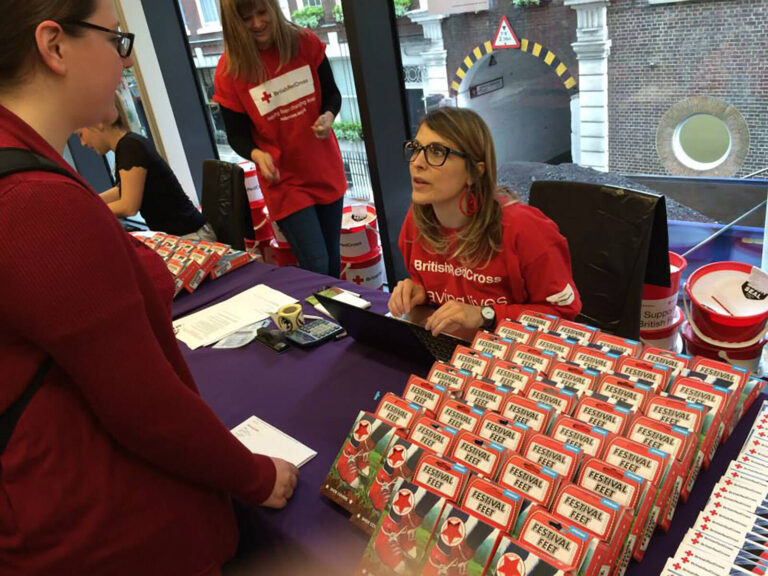
Why Become a Non-profit Event Planner?
Meaningful Events
Probably the biggest reason that charity / fundraising / non-profit event planners choose to work in this sector of the industry, is because they have some sort of affinity with a particular cause. If not that, they may just get a greater satisfaction from working on a fundraising / charity / non-profit event because it involves doing something worthwhile or giving something back.
Not only does a non-profit event planner get the pay-off of seeing all their hard work come to fruition in a successful event — as most event planners do, they also get to feel good knowing that it’s raised money for a worthy cause.
These types of events, by their very nature, are often more rewarding because the outcome is so much more meaningful. Imagine the difference you would feel having spent six months planning an amazing event that raised $300,000 to buy HIV medication to save the lives of orphaned children in Malawi, versus spending six months planning the launch of Kim Kardashian’s latest fragrance.
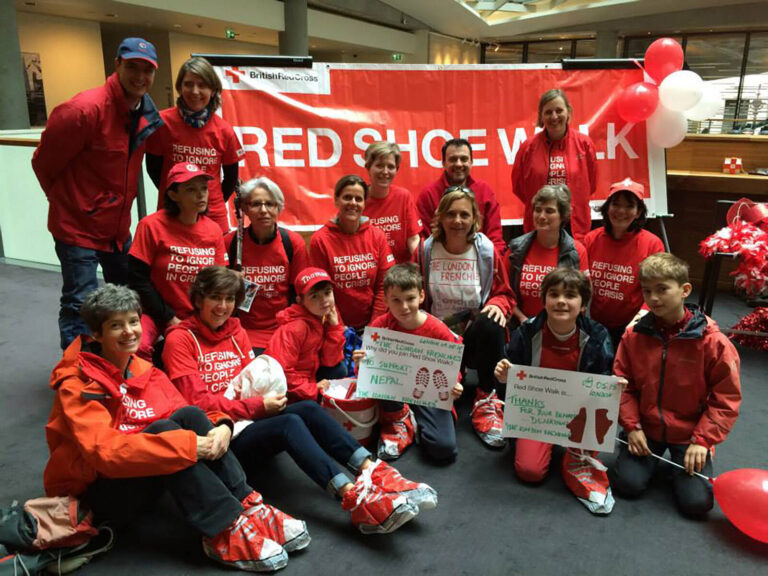
Creative Events
Charity, fundraising, and non-profit events can often be very creative events to work on too, for the simple fact that they have to inspire people to part with their cash! Ticket prices for these events are usually fairly high, as that is how income is generated for the cause. Therefore the quality of the event — in terms of the food, décor and entertainment — has to be of a reasonably high standard in order to justify the price.
In addition to that, the target audience for fundraisers and charity events are usually a fairly affluent crowd — perhaps business leaders or socialites — who regularly attend the best restaurants, parties, and charity events. To entertain and impress this sort of crowd means you’ve got to be pretty creative with your event — especially given charity / fundraising / non-profit events typically come with budget constraints. For a non-profit event planner, that type of challenge can be hugely attractive and rewarding.
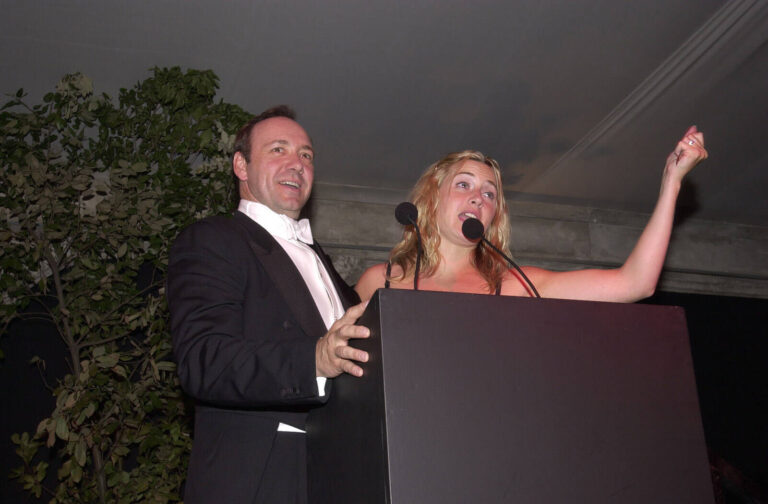
Working with Celebrities
The other advantage to working on charity, fundraising, and non-profit events is that they can often be high-profile or glamorous events, often with celebrity patrons, which can make the job more interesting.
Not only do celebrities attend these types of events, they often get more involved by acting as a host or MC, giving a speech, drawing a raffle, presenting auction lots, or even turning their hand at DJ’ing.
During my time as a charity / fundraising / non-profit event planner, I’ve worked closely with celebrities such as Catherine Zeta Jones, Sharon Stone, Sir Ian McKellen, Dame Judi Dench, Sir Elton John, Kevin Spacey, Kate Winslet, Emma Thompson, Elle MacPherson, and Victoria Beckham — who’ve all had some sort of hands-on role at the event.
Working with Famous Artists and Designers
In addition to the celebrity supporters, non-profit event planners often get access to artists and performers who might collaborate on a campaign or event. For example, I produced an event for Mattel to celebrate Barbie’s 40th Anniversary, which became a fundraiser for The Elton John AIDS Foundation. The project involved asking famous fashion designers and contemporary artists to either dress Barbie or create a work of art inspired by her.
The project attracted lots of well-known artists and designers who I had to liaise with, including Alexander McQueen, Stella McCartney, Jean Paul Gaultier, Versace, Prada, David Bailey, Ellen Von Unwerth, Sam Taylor-Johnson, and Mario Testino — and the event was hosted by Victoria Beckham and Elton John. Now, had it not been a charity fundraiser, there is no way we would have been able to collaborate with so many famous artists and designers who, in this case, waived any sort of fee for their involvement.
Working with Headline Acts and Performers
Similarly, well-known entertainers often donate their services to these types of events, so charity, fundraising, and non-profit event planners can easily find themselves working with high-profile names.
I’ve worked with artists such as Mary J Blige, Sting, Donna Summer, Elton John, Diana Krall, Barry Manilow, Patti LaBelle, Nile Rodgers & Chic, Bryan Adams, Craig David, Burt Bacharach and Dionne Warwick — all through charity, fundraising, and non-profit events.
So, the possibility of working with celebrities, artists, and performers is definitely one potential draw for non-profit event planners. I know that a lot of my best memories and ‘special moments’ working in the events industry have come from charity fundraising events, because they gave me the opportunity to work with people that I wouldn’t necessarily have access to working on regular commercial events.
Combine those sort of perks with the prospect of working on some pretty creative events, which also raise money for a worthwhile cause, and it’s easy to see why non-profit event planners choose to work in this sector.
Photo: Sting and Elton John duet at Elton John’s White Tie & Tiara Ball by Leftfield Productions
The Down Side
The downside, of course, is the pay. Salaries are often a fair bit lower if you work in-house for a charity or non-profit organization, although some compensate with more paid-holiday entitlement or less rigid working hours. Similarly, budgets can be extremely tight and, at times, virtually non-existent! Which means, as an event planner, you often can’t get to do the things you’d like — or you need to work even harder to fund the event through donations and sponsorship.
Pros of Becoming a Non-Profit Event Planner
To recap, some of the reasons why people choose to become a non-profit event planner are:
What it Takes to Be a Non-Profit Event Planner
Frugality
Perhaps the most important thing to recognize about the work of a non-profit event planner is that they are both an event planner and a fundraiser. Therefore, they often have to perform their role as an event planner while spending the least amount of money possible.
Most commercial event planners will be given a budget to make the event happen. Whereas, with non-profit event planning, often the cost of the event will be coming out of the profits — or, at best, there might be some sponsorship money that can be used as a production budget.
Resourcefulness
Regardless of how the event is funded, most non-profit event planners have to go that extra mile to reduce or supplement their budget by negotiating deals, donations, sponsorship, and ‘gifts in kind’.

This might include sourcing cash sponsorship, drinks sponsorship, and prizes for auctions and raffles, or negotiating with suppliers, artists, and performers to provide goods and services for free or at ‘cost price’. This adds additional pressure and challenges to the job, which other types of event planners may not do not have to deal with.
Administrative Duties
Another difference is the extra administrative work performed by non-profit event planners. These types of events are often run by committees and it’s surprising how much work can be generated for the event planner by having to facilitate and service some 20-30 committee members. A non-profit event planner often has to make the committee’s job as easy as possible, which can involve:
With so many stakeholders, you can sometimes feel a lot of your time is being spent acting as a secretary to 20-30 different people. So if you think you might want to become a non-profit event planner, you need to be comfortable taking on an increased amount of administrative and secretarial work.
This is in addition to the non-profit event planner’s own administrative duties that come with these types of events, such as:
How to Become a Non-Profit event Planner
For more information on how to become a non-profit event planner, check out this site’s companion book Become an Event Planner: Secrets for Getting Hired from Employers, Recruiters, and Event Professionals. Topics covered in the book include:
Topics covered in the book include:
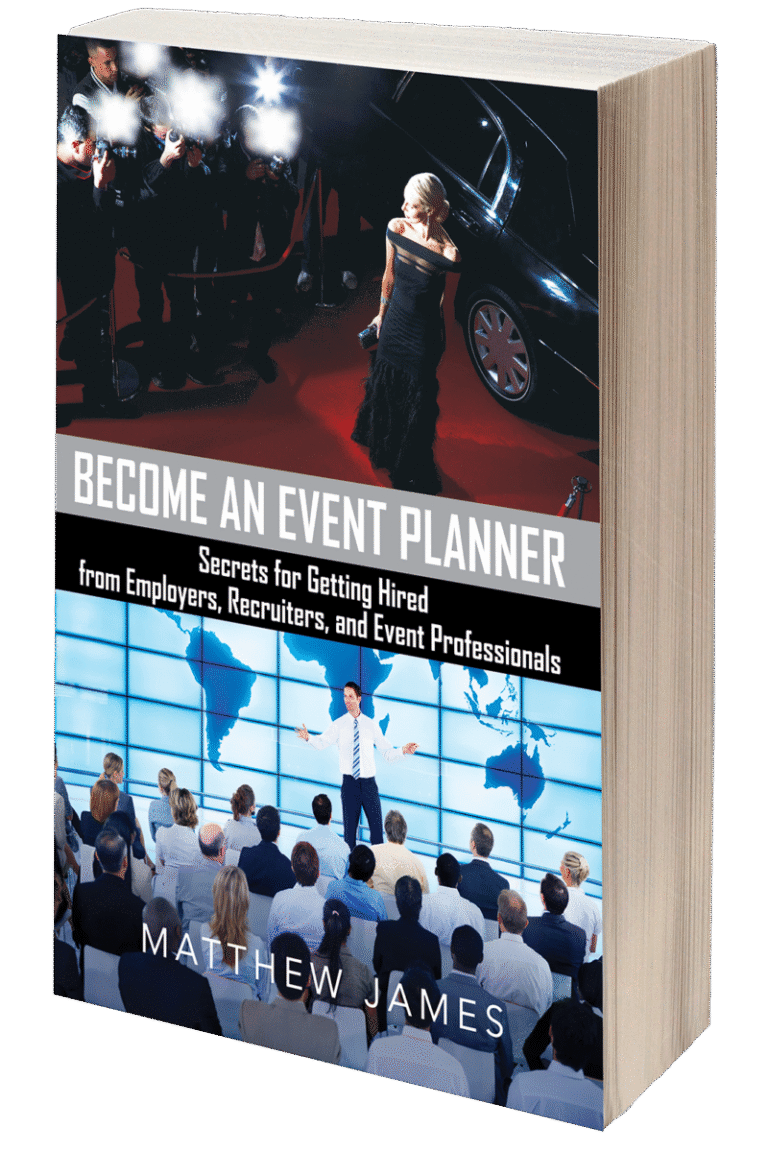
In The Next Section…
03 Being a Non-profit Event Planner
What does a non-profit event planner do? Read a real non-profit event planner job description by Farida Haqiqi, former Events Manager, The British Red Cross.